The Ultimate Guide to Pigeon Worming: Products, Dosages, and Best Practices
The Ultimate Guide to Pigeon Worming: Products, Dosages, and Best Practices
Keeping your pigeons in peak health is crucial, especially if you’re raising them for racing or breeding. Parasites like worms and mites can significantly impact their health, energy levels, and overall performance. That’s where effective pigeon worming products come into play. These dewormers are trusted by pigeon fanciers worldwide to eliminate internal and external parasites, ensuring optimal health for their birds.
In this in-depth guide, we’ll explore everything you need to know about pigeon worming, including the best products, their dosages, preventive methods, and follow-up treatments to maintain a parasite-free flock.
Why Is Worming Important for Pigeons?
Pigeons, especially those that race or live in lofts with multiple birds, are at risk of contracting parasitic worms and mites. These parasites can cause weight loss, weakened immunity, digestive issues, and poor flight performance. Regular worming ensures your pigeons remain healthy, active, and ready for competition.
Common Worms and Mites That Affect Pigeons
Effective worming treatments target a variety of internal and external parasites, including:
- Mites – External parasites that cause irritation, feather damage, and overall distress.
- Roundworms – Intestinal worms that hinder nutrient absorption, leading to weight loss and weakness.
- Ascarid Worms – Common in pigeons and often contracted from dogs or cats, affecting digestion and growth.
- Capillaria Worms – Particularly found in racing pigeons, these parasites can lead to severe intestinal damage.
- Tapeworms – These worms attach to the intestinal lining, stealing nutrients from your pigeon’s diet.
- Strongyles Worms – Harmful parasites that cause significant internal damage if left untreated.
By using effective pigeon wormers, you can efficiently control these parasites and keep your pigeons in top form.
Top Pigeon Worming Products and Their Usage
1. Moxidectin/Ivomec Wormer
- Effective Against: Mites, roundworms, ascarid worms, capillaria worms, tapeworms, and strongyles worms.
- Dosage & Administration:
- Drinking Water Method: Mix the recommended dosage into pigeons’ drinking water for 24 hours.
- Direct Oral Administration: Administer via syringe directly into the pigeon’s beak.
- Frequency: Every 3-4 months, before racing and breeding seasons.
2. AVIO SOLUWORM 100g Pigeon Dewormer
- Effective Against: Roundworms, capillaria worms, and strongyles.
- Dosage & Administration:
- Dosage: 5g per 2 liters of drinking water for 24 hours.
- Repeat treatment after 3 weeks to ensure full parasite elimination.
- Use every 3-4 months for optimal results.
3. PIGEON DEWORMER GEL – 100 ML
- Effective Against: Roundworms, tapeworms, and ascarid worms.
- Dosage & Administration:
- Administer directly into the beak with a syringe or mix into feed.
- Frequency: Every 4 months or as directed by a veterinarian.
4. Cest Pharma Dewormer for Pigeons
- Effective Against: Capillaria worms, roundworms, and tapeworms.
- Dosage & Administration:
- Tablet Form: One tablet per pigeon.
- Repeat after 10 days if necessary.
- Ideal for individual bird treatment rather than loft-wide administration.
5. Dac Worm Tablets – 50 ct
- Effective Against: Roundworms, tapeworms, and capillaria worms.
- Dosage & Administration:
- One tablet per pigeon administered directly into the beak.
- Repeat after 14 days to break the parasite cycle.
6. MoxiVet Plus – Moxidectin + Praziquantel Parasite Control for Birds
- Effective Against: Internal and external parasites, including mites and worms.
- Dosage & Administration:
- Drinking Water Method: Mix with drinking water as directed.
- Ideal for broad-spectrum parasite control every 3-4 months.
Preventive Measures to Reduce Worm Infestations
Using dewormers is essential, but preventive care plays a crucial role in keeping pigeons parasite-free. Here’s how you can minimize the risk of infestations:
- Maintain Clean Loft Conditions – Regularly disinfect lofts, perches, and feeding areas to reduce parasite exposure.
- Quarantine New Birds – New pigeons should be quarantined and dewormed before introducing them to your flock.
- Rotate Wormers – Using different worming products prevents parasites from developing resistance.
- Avoid Contact with Other Animals – Prevent pigeons from coming into contact with infected dogs, cats, or wild birds.
- Provide a Nutrient-Rich Diet – A strong immune system helps pigeons fight off infections naturally.
Follow-Up Treatment: What to Expect After Worming
After worming, you may notice a few changes in your pigeons:
- Some birds may pass dead worms in their droppings – this is a sign that the treatment is working.
- Increased appetite and improved condition as they regain lost nutrients.
- Brighter plumage and more energy, especially in racing pigeons.
- Repeat worming after 10-14 days if necessary, to break the lifecycle of certain parasites.
When Should You Worm Your Pigeons?
For optimal health and racing performance, follow this worming schedule:
- Before the Racing Season – Ensures your birds are in peak condition.
- Before Breeding – Prevents parasites from affecting hatchlings.
- After Molting – Helps pigeons recover efficiently and grow strong new feathers.
- Every 3-4 Months – A regular worming routine prevents severe infestations.
Final Thoughts: Keep Your Pigeons Healthy with Regular Worming
Worming your pigeons is one of the most important steps in maintaining their health, longevity, and performance. The right pigeon worming products, such as Moxidectin/Ivomec Wormer, AVIO SOLUWORM, Dac Worm Tablets, and MoxiVet Plus, provide safe, effective, and easy solutions for eliminating parasites that can negatively impact your birds.
By following a regular worming schedule, using the correct dosages, and maintaining preventive hygiene measures, you can ensure that your pigeons remain parasite-free, strong, and ready to compete. Whether you’re a seasoned pigeon racer or a dedicated breeder, incorporating the best dewormers into your care routine will make a world of difference.

